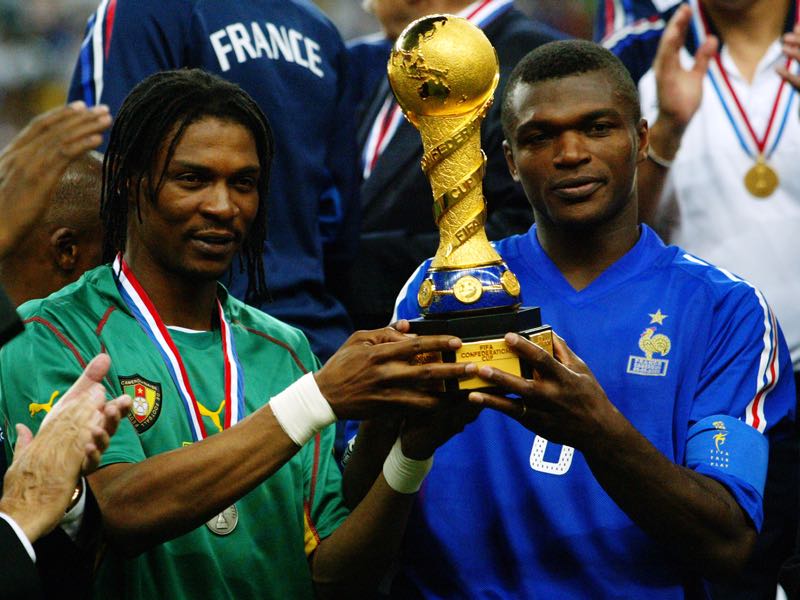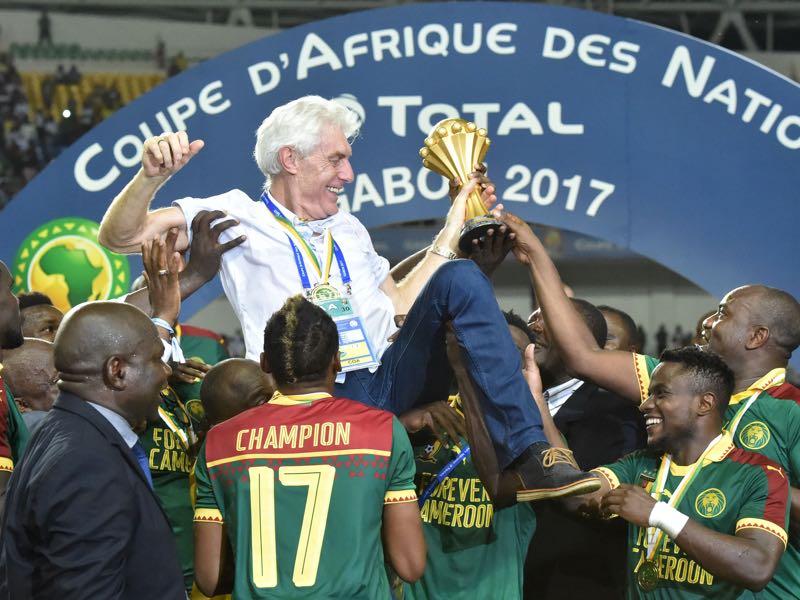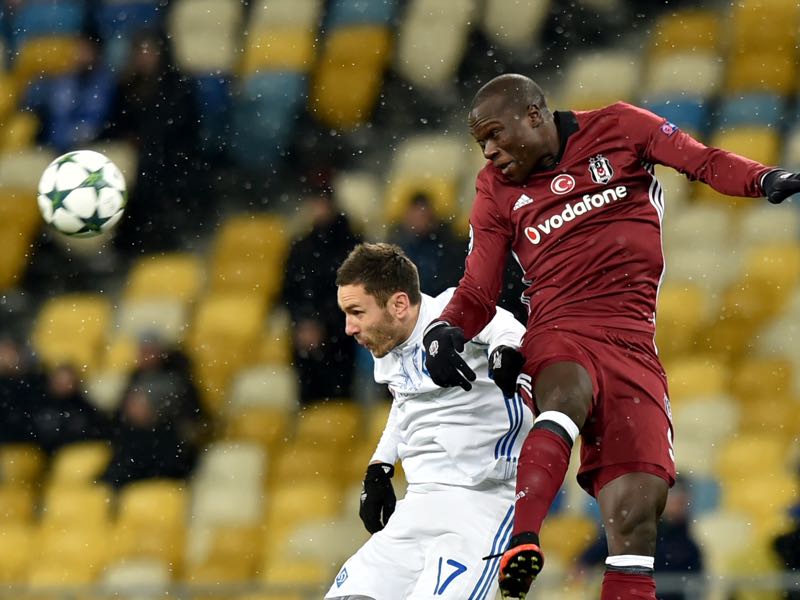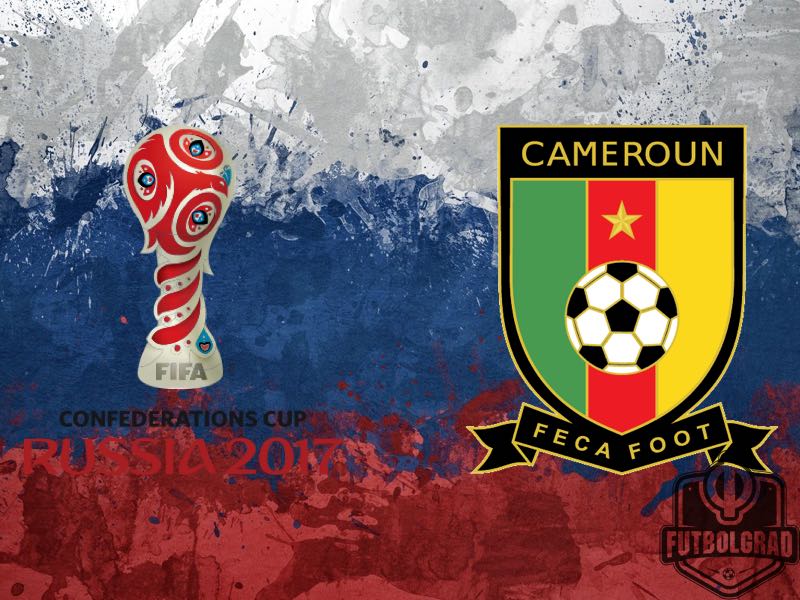Manuel Veth –
The 2017 FIFA Confederations Cup marks the third time that Cameroon are participating at the FIFA Confederations Cup. The African nation participated at the 2001 Confederations Cup in South Korea and Japan and then the extraordinary Confederations Cup that took place in France in 2003.
Cameroon were eliminated in the group stage phase of the 2001 edition, but in 2003 managed to surprise the world when the country, let by superstar Samuel Eto’o reached the final against hosts France. At the same time, the success was overshadowed by the sudden death of Marc-Vivien Foé, who collapsed on the pitch in the 72nd minute of the semi-final at the Stade de Gerland in Lyon where Cameroon faced Colombia. Shocked by the death of their teammate Cameroon were defeated in the final by France. Marcel Desailly, however, refused to lift up the trophy high and instead held it in unison with Cameroon captain Rigobert Song.

Rigobert Song of Cameroon and Marcel Desailly of France both hold the winning trophy after the 2003 FIFA Confederations Cup Final between France and Cameroon. (Photo by Ben Radford/Getty Images)
The tournament in France was the last appearance of the Lions at the Confederations Cup. The African country has since undergone a slow generation change. Back in the 1990s the Lions were one of the most dominant countries in African football and managed to qualify for four consecutive World Cups between 1990, where they reached the quarter-final, and 2002. Then in 2006, Cameroon missed out on the World Cup, and although they managed to qualify for the 2010 and 2014 World Cup, the country has struggled to reach the kind of success the nation managed in the 1990s.
The country also missed out on qualifying for 2012 as well as the 2013 Africa Cup and then failed to get out of the group stage at the 2015 Africa Cup. The failure in 2015 led to a major football crisis in the country and a dedicated rebuilding effort of the Lions.

Hugo Broos guided Cameroon to the 2017 Africa Cup triumph. Rigobert Song of Cameroon and Marcel Desailly of France both hold the winning trophy after the 2003 FIFA Confederations Cup Final between France and Cameroon. (Photo by ISSOUF SANOGO/AFP/Getty Images)
Several old stars were shown the door and Belgium head coach Hugo Broos was hired to build a young and exciting squad. The Belgium has introduced many young players, who for the most part are still relatively unknown quantity in world football.
That said there are some exciting players in the squad that have already made a name for themselves especially this season. In goal, for example, Broos can rely on Ajax Amsterdam keeper Andre Onana. Onana is a modern keeper, who is good both with his hands and his feet. Playing in the Ajax system means that Onana can play almost like an extra field player, which will allow Cameroon to switch from defence to attack quickly.

Vincent Aboubakar (r.) is Cameroon’s most recognisable player. (SERGEI SUPINSKY/AFP/Getty Images)
The squad’s other biggest star is Beşiktaş striker Vincent Aboubakar. Robust and athletic Aboubakar certainly has the talent to become a world-class striker, but he has failed to show consistency necessary to break into the world elite. Another exciting player is former Aalborg BK striker Christian Bassogog. Bassogog had several offers from European clubs following Cameroon’s success at the Africa Cup, but the 21-year-old striker chose to sign for Henan Jianye in China instead.
Cameroon – Opponents
Together with Chile, Australia and Germany, Cameroon were drawn into Group B. The Lions will open the tournament on June 18 against Chile at the Otkrytiye Arena in Moscow and then travel north to Saint Petersburg to face Australia at the Krestovsky Stadium on June 22. They will then round up the group stage when they face Germany on June 25 at the Fisht Olympic Stadium in Sochi. Travelling between three host cities Cameroon will certainly face significant logistical challenges at this tournament, and it will be interesting to see how the young squad will handle the climatically and cultural differences of the three host cities.
Cameroon – What to Expect
Cameroon are the big unknown of the tournament. The team is relatively unknown, which could be their biggest asset going into this tournament. That said the likes of Germany national team head coach Joachim Löw will be very well prepared when it comes to facing Cameroon. In fact, facing powerhouses such as Chile and Germany, who despite bringing a largely experimental squad should be still a force, could be still a step too far for the relative young Lions. Much will depend on how Cameroon will handle themselves in the first two matches where the Lions will at least need four points if they want to have a realistic chance to get out of the group. Having said that it is unlikely that Cameroon will be able to finish ahead of both Germany and Chile.
Cameroon – Squad
Goalkeepers: Joseph Ondoa (Sevilla), Georges Bokwe (Mjondalen), Andre Onana (Ajax)
Defenders: Ernest Mabouka (MSK Zilina), Adolphe Teikeu (Sochaux), Michael Ngadeu (Slavia Prague), Ambroise Oyongo (Impact Montreal), Jerome Guihoata (Panionios), Collins Fai (Standard Liege), Lucien Owona (Alcorcon), Jonathan Ngwem (Sambizanga)
Midfielders: Andre Zambo Anguissa (Marseille), Georges Mandjeck (FC Metz), Sebastien Siani (Oostende), Arnaud Djoum (Hearts)
Forwards: Nicolas Ngamaleu (Rheindof), Benjamin Moukandjo (Lorient), Jacques Zoua (Kaiserslautern), Vincent Aboubakar (Beşiktaş), Olivier Boumal (Panathinaikos), Christian Bassogog (Henan Jianye), Robert Tambe Ndip (Spartak Trnava), Karl Toko (Angers)
Manuel Veth is a freelance journalist and social media editor at Bundesliga.com. He is also a holder of a Doctorate of Philosophy in History from King’s College London, and his thesis is titled: “Selling the People’s Game: Football’s transition from Communism to Capitalism in the Soviet Union and its Successor States,” which will be available in print soon. Originally from Munich, Manuel has lived in Amsterdam, Kyiv, Moscow, Tbilisi, London, and currently is located in Victoria BC, Canada. Follow Manuel on Twitter @ManuelVeth.





















COMMENTS